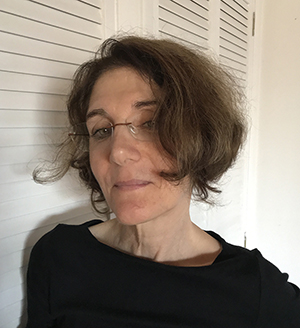|
Most of what I've learned about writing fiction I learned from reading fiction. It's what I had in my toolbox when I started writing short stories with serious intent and it has been enough to get me a long way. But it wasn't enough to get me all the way. So I read a lot of good books about writing and took a few courses and even though I continued to make progress I still wasn't where I wanted to be.
I felt as if I were standing on one side of a chasm and couldn't figure out how to make the leap to the other side—to go from being someone who had interesting ideas and a facility with language to someone who could write a complete and compelling story. I believed there was some crucial information, some special secret writing knowledge, that I did not yet possess. Nothing I wrote felt truly done or entirely realized and therefore worthy of submission to anyplace. I was sure if I sent my work out I would simply be rejected and I feared that.
Once in a while I'd write something I thought might be pretty good and I'd screw up my courage and submit it in a state of hopeful panic—selecting a suitable journal, logging onto Submittable, uploading my file and closing my eyes before I clicked on the Submit button. Here. I wrote this. Maybe you'll like it? It was a needy and fear-filled exercise. The rejection I eventually received would crush me and cure me of the desire to submit anything again anytime soon.
Of course this was wrong-headed. Rejection comes everyone's way. Rejection is part of the writing landscape and, in my heart, I knew it. You don't have to look very far to find wonderful stories and novels that were rejected many times before finding a home. You don't have to think very hard to figure out that submitting your work is as much a part of the writing process as putting a nail in the wall and hanging up a canvas is part of painting or renting a theatre and putting on a performance is part of choreography.
So there came a point when I realized that I had to begin submitting my work with the same serious intent with which I was writing it or I couldn't continue to consider myself a writer. I would, I believed, get better at dealing with rejection as I went along. You can get used to anything if you expose yourself to it often enough.
And I did get better at it. But far more important was something I had not expected and that was—for me, an unpublished writer struggling to gain a foothold—transformative: I discovered that the very act of submitting my work with serious intent was a powerful way to improve my work.
I saw that there is something in the way you look at what you've written when you're preparing it for submission with serious intent that is very different from the way you look at it in that final exhausted/elated read-through, sitting at your desk doing a final tweaking pass before you drag the file into the “Finished Stories” folder on your computer. When you prepare your work for submission with serious intent there's an elevation of purpose that only happens when you know an editor is going to read (or not read) your manuscript, a singular pressure that raises the stakes and forces you to honestly consider whether the piece asks a compelling question and then answers it in the clearest way possible. It demands that you get out of your own needy, wishful, rejection-fearing way and become impersonal and ruthless about your work. Which is, of course, exactly what you must do to make it the best it can be. After you have, you've done your part and its fate is out of your hands.
A simple and rather obvious thing to discover, perhaps—the degree of grit and diligence required of you when you take yourself seriously so that others might, too. (Feel free to call me a late bloomer.) But it changed everything.
Not that there won't always be more to learn. But there was, I now knew, no special secret writing knowledge that I did not already possess. My needy, wishful, rejection-fearing self was what I had to leap over. The chasm had never been in front of me. It had been inside of me all along.
|


